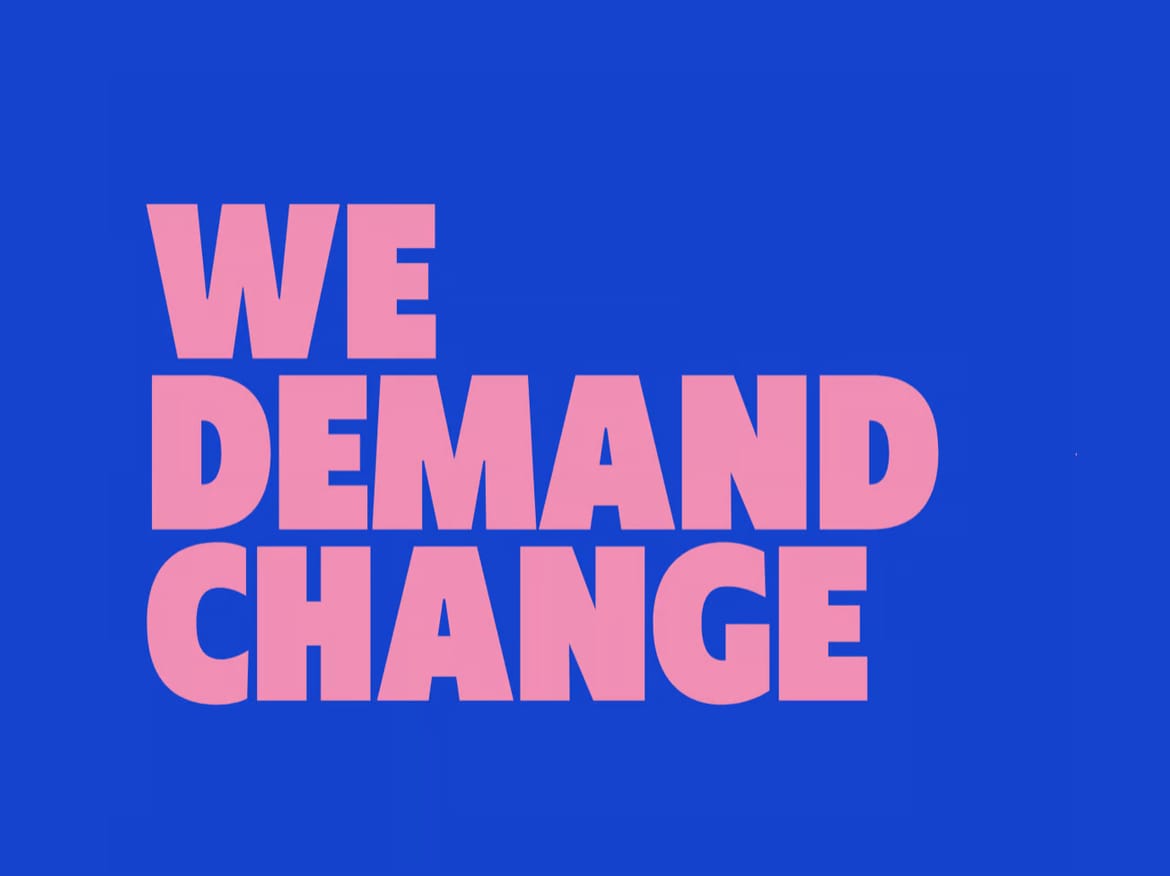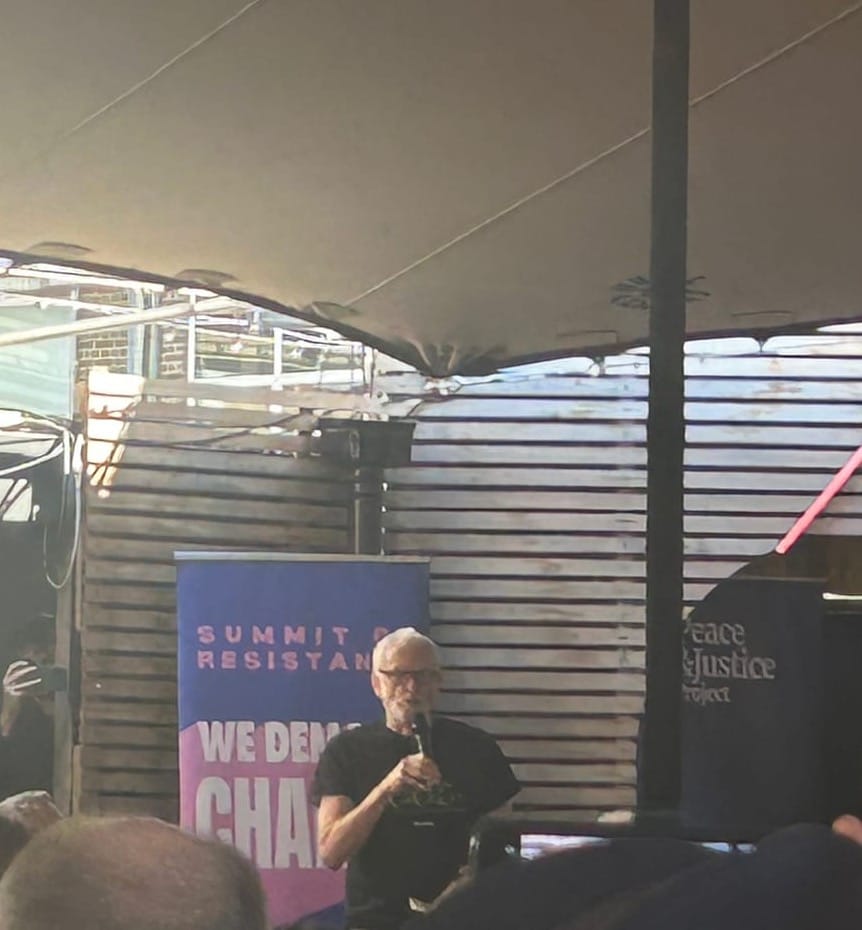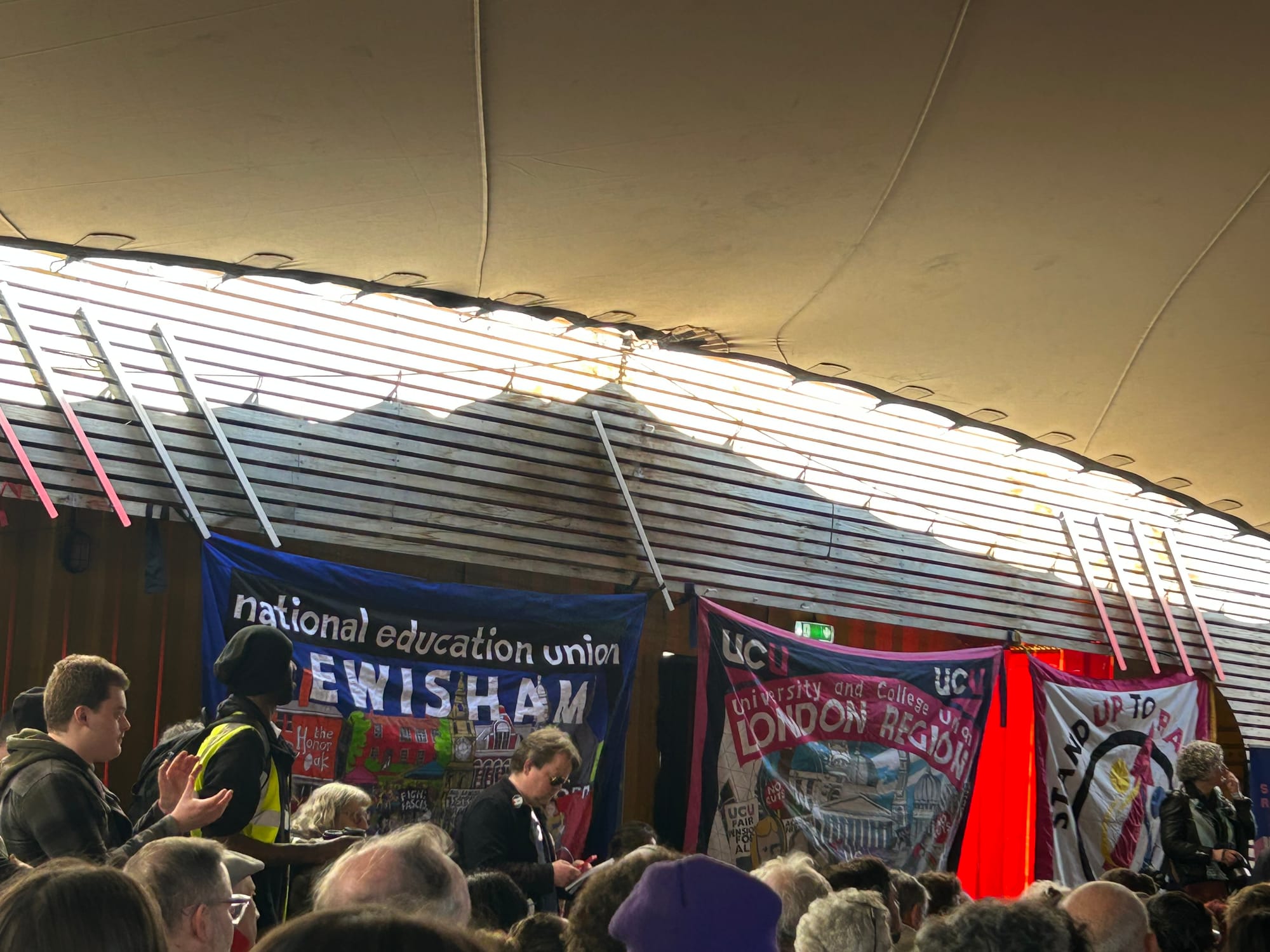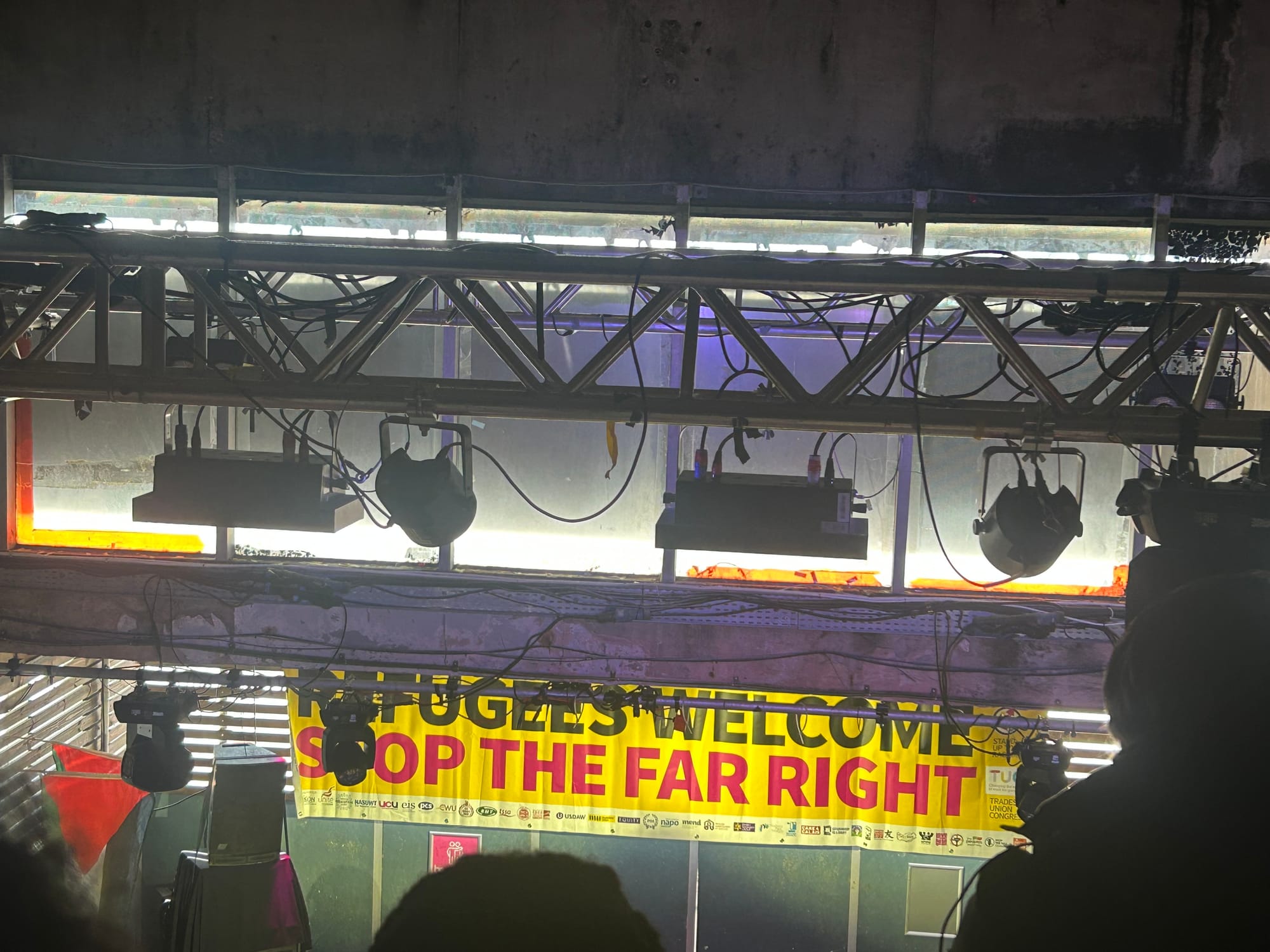What I thought of the We Demand Change Rally- Jacob Barclay-Evans
Find out what the WeDemandChange movement looks like and where we’re to go from here!

Attending the We Demand Change rally was a historic moment for me. It was my first political rally, and the atmosphere was electric. Seeing some of my favourite politicians, like Jeremy Corbyn, alongside esteemed economists and thinkers, was both inspiring and eye-opening. It was also an opportunity to acquaint myself with new figureheads—activists, organisers, and grassroots leaders—who are shaping the movement for a fairer society. The sheer number of people who turned up was astonishing. The queue to get in snaked so far up the Thames that it felt longer than Thatcher’s dole queue; it brimmed me with reassurance that not all people are giving in to hate.

A Proud Day for Political Activism
The rally made one thing very clear: this movement is heading in the right direction. The workshops, particularly those led by anti-racist campaigners, were powerful and informative. Discussions on resisting the far right and fighting austerity not only moved the crowd but also highlighted the effectiveness of collective action. A key takeaway was the messaging around Nigel Farage—how he presents himself as anti-establishment while embodying everything about the establishment. But crucially, the speakers urged against demonising potential Reform UK voters, many of whom have simply lost faith in the political system. This resonated deeply, as the rally’s overarching message was about shared values of social justice. Whether the discussion was about racism, Palestine, or austerity, it was evident that these issues were not separate but rather interconnected in a broader struggle for justice.
Another highlight of the rally was the focus on unionising and the incredible sense of camaraderie, particularly around the Birmingham bin strikes. The messaging here was spot on—these workers weren’t holding their communities to ransom; they were holding the bosses to ransom, the same bosses who were attempting to slash their wages by up to £6,000 a year. The speakers made it clear that strikes like these aren’t acts of selfishness but acts of necessity, a stand against exploitation and a fight for dignity in the workplace. The solidarity in the room was palpable, with rapturous applause whenever trade unionists took the stage to speak about their struggles and victories. It was a reminder that the labour movement is the backbone of any meaningful push for economic justice, and that real power doesn’t just come from Parliament but from the collective strength of workers refusing to be trampled by austerity and corporate greed.

An Honest Critique
However, while the energy and messaging were largely positive, there were also some glaring issues that need addressing. While the turnout was a testament to the strength of the movement, it also revealed some of its organisational and strategic weaknesses.
One issue that stood out was the presence of multiple leftist parties—The Socialist Workers Party, Socialist Alternative, the Trade Unionist and Socialist Coalition (TUSC), and Unite the Left—all vying for attention.

As someone who supports grassroots movements, I understand the importance of diverse activism and local organising. However, when it comes to electoral strategy, the fragmentation of the left is a serious problem.
Farage, for all his faults, has successfully positioned himself as the clear right-wing alternative to the Tories, forcing them even further to the right. This kind of clarity in messaging is something the left sorely lacks. Multiple parties advocating for the same cause risks splintering the vote, ultimately weakening the movement’s ability to gain real parliamentary power and enact change.

The paradox of left-wing activism was also on full display. While many speakers emphasised the need for constructive dialogue with disillusioned voters, some activists took to the mic to denounce Farage’s supporters outright, relishing in the idea of disrupting their events in Yorkshire and Birmingham. There’s an irony in simultaneously advocating for effective communication while indulging in rhetoric that alienates potential allies. The left has long been dismissed by its critics as a movement of protest rather than governance, and while I reject that view, moments like this play into that stereotype. People are eager to label where they are politically, whether that be Marxist, Communist, Socialist, Greenist, yet if we are to truly learn from Farage’s political strategy, we must understand that engaging in culture wars alone won’t bring electoral success. It won’t pull Labour to the left, reverse austerity, or end the UK government’s complicity in genocide in Gaza.
Conclusion
Ultimately, a united movement on the left is the only way forward. Overall, the day was most enjoyable, and quite emotional in some sense as it has restored my faith in leftist politics and that we can unite when the time is right, and the time has never been more apt than now.
After all, as Marx himself wrote in the Communist Manifesto: “Working men of all countries, unite!” It’s time we took that message to heart.